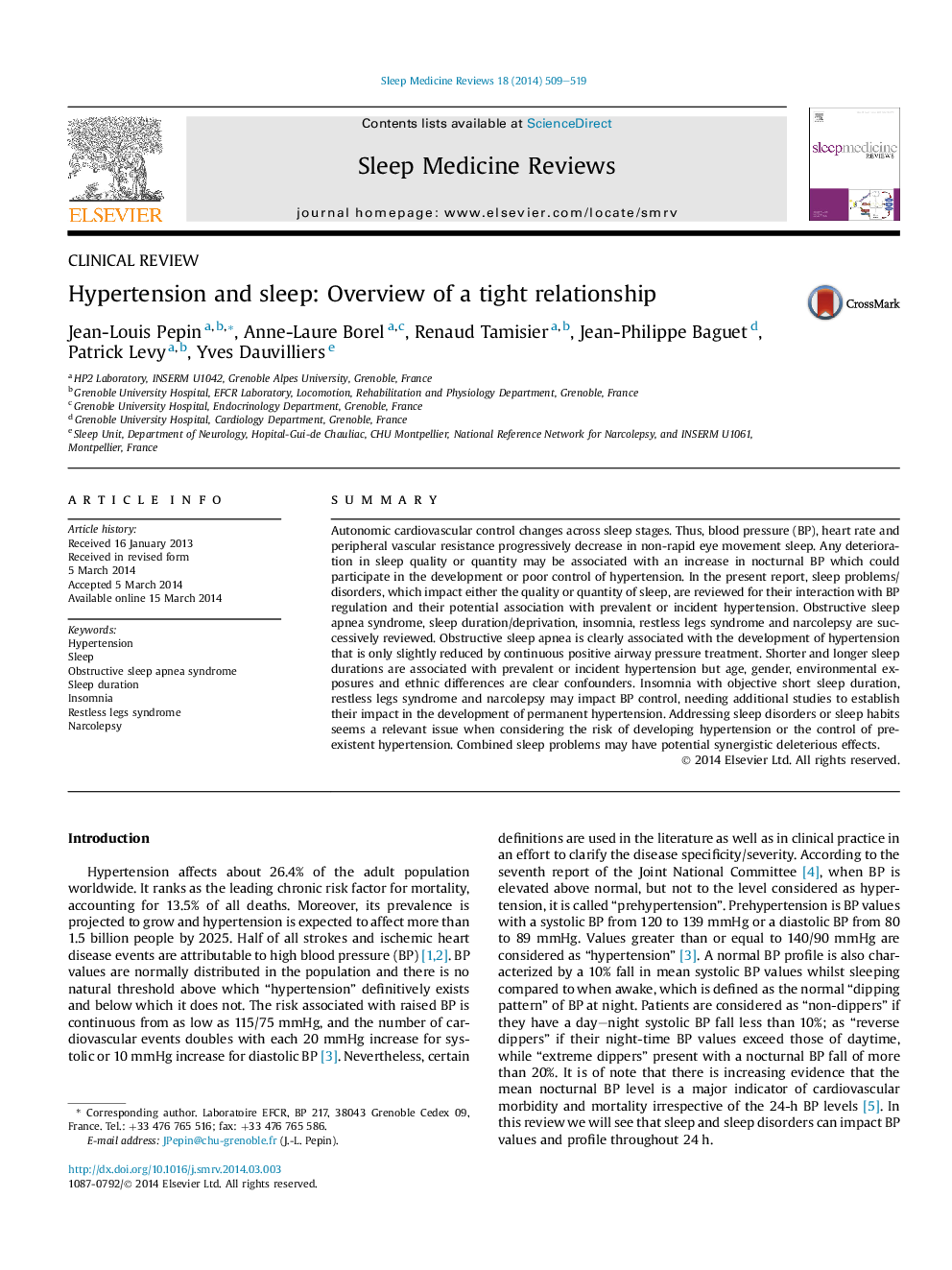| Article ID | Journal | Published Year | Pages | File Type |
|---|---|---|---|---|
| 3091407 | Sleep Medicine Reviews | 2014 | 11 Pages |
SummaryAutonomic cardiovascular control changes across sleep stages. Thus, blood pressure (BP), heart rate and peripheral vascular resistance progressively decrease in non-rapid eye movement sleep. Any deterioration in sleep quality or quantity may be associated with an increase in nocturnal BP which could participate in the development or poor control of hypertension. In the present report, sleep problems/disorders, which impact either the quality or quantity of sleep, are reviewed for their interaction with BP regulation and their potential association with prevalent or incident hypertension. Obstructive sleep apnea syndrome, sleep duration/deprivation, insomnia, restless legs syndrome and narcolepsy are successively reviewed. Obstructive sleep apnea is clearly associated with the development of hypertension that is only slightly reduced by continuous positive airway pressure treatment. Shorter and longer sleep durations are associated with prevalent or incident hypertension but age, gender, environmental exposures and ethnic differences are clear confounders. Insomnia with objective short sleep duration, restless legs syndrome and narcolepsy may impact BP control, needing additional studies to establish their impact in the development of permanent hypertension. Addressing sleep disorders or sleep habits seems a relevant issue when considering the risk of developing hypertension or the control of pre-existent hypertension. Combined sleep problems may have potential synergistic deleterious effects.
